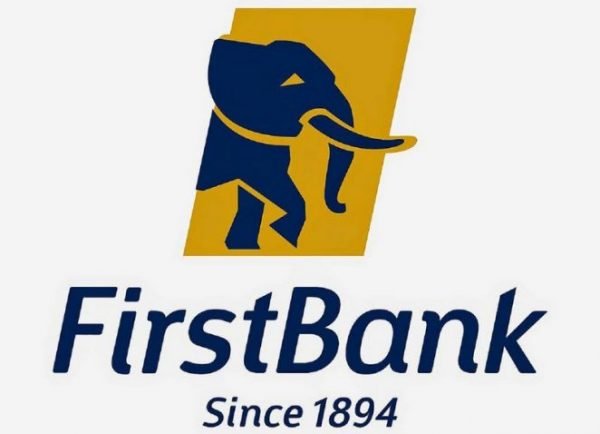Economy
Marrakech Declaration: Africa Calls for Fairer Global Financial Architecture

The African continent has advanced reasons for a global financial architecture that is fairer and more conducive to the continent’s development
The position was canvassed at the high-level ministerial meeting on accelerating the financing of Africa’s emergence, on the sidelines of the WB-IMF Annual Meeting which resulted in the adoption of the “Marrakech Declaration’’.
The forum was organised at the initiative of the Kingdom of Morocco and called for the realisation of the continent’s growth priorities, which respect the sovereignty and territorial integrity of African states and contribute to the development of its populations.
It further called for the strengthening of bilateral and multi-lateral cooperation, to support Africa’s infrastructure deficit, through increased financing, provision and transfer of technical and technological expertise, and capacity building.
Addressing donors, partners and friendly countries, the continent also called for support for the emergence of a dynamic, wealth-creating private sector, capable of supporting the development of structuring infrastructure projects and bridging the infrastructure financing gap.
The Kingdom of Morocco’s Minister of Economy and Finance, Nadia Fettah, was consequently mandated to follow up the implementation of the Declaration, and urged to inaugurate an Inter-African taskforce to share best practices and experiences in the fields of infrastructure development and financing in Africa.
This move, it was argued would assist in the development of structure and bankable infrastructure projects as well as Africa’s infrastructure projects at roadshows to raise funds from potential investors.
They also agreed to support the establishment and operationalisation of the Inter-African Taskforce as part of an open dialogue aimed at promoting infrastructure development activities in Africa.
Equally, they reaffirmed their commitment to working toward sustainable African co-emergence, where infrastructure investment would play a key role as a development driver, within the framework of joint continental and regional initiatives; to capitalise on international infrastructure initiatives for the benefit of the African continent’s emergence.
In addition, it would intensify their joint efforts to strengthen the business climate by improving structural conditions for investment, mobilising financing to stimulate economic recovery, and creating a favourable environment for entrepreneurship and innovation.
The participating countries also reiterated their commitment to encouraging the establishment of a distinct climate governance model.
This, they said is based on a spirit of partnership and African ownership, and to working to mobilise diverse sources of financing, particularly private, to meet Africa’s infrastructure challenge more effectively and reduce the pressure on their public resources.
They also stressed that, despite their efforts, they still face major challenges in terms of infrastructure, which plays a crucial role in developing their industries and value chains, creating jobs, improving the standard of living of their populations, and contributing to achieving the objectives of Agendas 2030 and 2063.
The Marrakech Declaration asserted that the question of financing remains a crucial issue to be addressed for the development of ambitious infrastructure programmes, capable of bridging the infrastructure gap from which African countries suffer, and that this financing effort cannot be ensured by public resources alone.
The Declaration points out that the lack of active, long-term international solidarity is considerably slowing down the momentum of climate action in Africa, penalising the continent, which until 2020 has received only 12 per cent of the annual flows of climate financing it needs.
The participants also agreed that the progress made by the continent at various levels, in terms of infrastructure, has resulted in the implementation of large-scale projects, that bears witness to the continent’s determination to make good Africa’s infrastructure deficit and achieve sustainable development and solid growth.
Equally, they noted that “the consolidation of intra-continental economic relations, in line with the objectives and commitments of our countries to develop South-South cooperation, is a key condition for the future development of our continent, and requires the establishment of quality infrastructures to support these ambitions”.
The African stakeholders thanked King Mohammed VI for his leadership and commitment to strengthening inter-African cooperation, as well as the government and people of Morocco for hosting the Annual Meetings of the World Bank Group and the International Monetary Fund, and for the warm hospitality extended to all participants.
They also congratulated the Kingdom of Morocco on its designation as host country for the 2030 World Cup, which represents a unique opportunity to catalyse growth and infrastructure modernisation in the Kingdom, and demonstrates confidence in Africa’s ability to meet the greatest challenges.(NAN)
Economy
FCCPC Seals France, Belgium, Italy visa Centers Over Investigation Obstruction, Suspected Unfair Practices

The Federal Competition and Consumer Protection Commission (FCCPC,), has sealed off France, Belgium and Italy visa centres located at the Mukhtar El-Yakub House, Central Business District, Abuja.
The office was sealed with the combined efforts of operatives from the FCCPC, Nigerian Police Force (NPF) and the Nigeria Security and Civil Defence Corps as staff of the centre resisted the sealing.
Sealing off the centre on Thursday, Mrs Boladale Adeyinka, the Director, Surveillance and Investigations Department of FCCPC, said the move was due to failure of the centre to receive a letter of the Commission to investigate a consumer complaint.
Adeyinka said the centre was also sealed due to obstruction of investigation or inquiry and conducting services considered upon reasonable suspicion to be inimical to consumers’ welfare.
She mandated the company to apper before the Commission on June 20, to testify, make depositions and provide evidence in relation to failure to receive a letter of the Commission to investigate a complaint and obstruction of investigation or inquiry.
”This is an enforcement operation against TLS.
”As you are aware, they provide visa support services to Nigerian consumers.
”On the 25th of March 2025, based on consumer complaint, a letter was served on them to address the consumer complaint as is the process of amicable resolution of consumer complaints at the commission.
”The officers of TLS, rather than receive the consumer complaint, proceeded to assault our officers who were conducting the lawful duty of protecting and implementing the provisions of the Federal Competition and Consumer Protection Act (FCCPA).
”Upon receipt of that report, the commission directed that they should be summoned (1:25) to appear before the commission pursuant to Section 33 of the FCCPA.
”Rather than receive the summons of the commission, officers of TLS again on June 17, proceeded not only to assault our officers but also assaulted uniformed officers of the police force who were providing lawful security for the operations of the commission.
”Section 33 stipulates that any person who without sufficient cause fails or refuses to appear before the commission in compliance with a summons commits an offence and is liable on conviction to imprisonment for a term not exceeding three years or fine not exceeding #20 million or both fine and imprisonment,” she said.
Adeyinka directed that the Company would be liable for all losses and expenses encountered by visa applicants as a result of the enforcement.
However, the Management of the Company refused to comment on the matter.
The centre is being managed by TLS Contact, a Teleperformance Company. (NAN)
Economy
CBN Takes Steps to Strengthen Banking Sector, Issues Routine Transitional Guidance

The Central Bank of Nigeria (CBN), has introduced time-bound measures for some banks still completing their transition from the temporary regulatory support provided in response to the economic impact of the COVID-19 pandemic.
According to a statement issued by Mrs Hakama Sidi-Ali, , CBN’s Acting Director, Corporate Communications Department , this is part of its ongoing efforts to strengthen the banking system.
Sidi-Ali said that the step was part of the CBN’s broader, sequenced strategy to implement the
recapitalisation programme announced in 2023.
She said that the programme, designed to align
with Nigeria’s long-term growth ambitions, had already led to significant capital inflows and balance sheet strengthening across the sector.
“Most banks have either completed or are on track to meet the new capital requirements well before the final implementation deadline of March 31, 2026.
“The measures apply only to a limited number of banks. These include temporary restrictions on capital distributions, such as dividends and bonuses to support retention of internally generated funds and bolster capital adequacy.
“All affected banks have been formally notified and remain under close supervisory engagement ” she said.
She said that to support a smooth transition, the CBN had allowed limited, time-bound flexibility
within the capital framework, consistent with international regulatory norms.
“Nigeria generally maintains Risk-Based Capital requirements that are significantly more stringent than the global Basel III minimums.
“These adjustments reflect a well-established supervisory process consistent with global norms. Regulators in the U.S., Europe, and other major markets have implemented similar transitional measures as part of post-crisis reform efforts.
“The CBN remains fully committed to continuous engagement with stakeholders throughout this period via the Bankers’ Committee, the Body of Bank CEOs, and other industry forums,” she said.
She said that the goal to ensure a transparent, Nigeria’s banking sector remained fundamentally strong.
According to her, these measures are neither
unusual nor cause for concern.
She said that they were a continuation of the orderly and deliberate implementation of reforms already underway.
She said that the CBN would continue to take all
necessary actions to safeguard the sector’s stability and ensure a robust, resilient financial ecosystem that supports sustainable economic growth. (NAN)
Economy
Cybercrime: First Bank Invests N15bn to Protect Systems From hackers in 5 months –CEO

First Bank HoldCo Plc says it has spent more than N15 billion to protect its systems against criminals between January and June.
Olusegun Alebiosu, the Chief Executive Officer (CEO), First Bank HoldCo Plc, said this in an interview in Abuja on Wednesday.
Alebiosu, who spoke on the sideline of a two-day National Seminar on Banking and Allied Matters for Judges, said the Bank had spent three N3 billion in June to protect its systems.
He said the bank had the best cyber security framework in the country, hence the investment.
The CEO who was speaking on the increasing number of attacks by cybercriminals, especially on banks’ systems, assured First Bank customers of the safety of their monies.
Alebiosu frowned at the rate at which some citizens were involved in cybercrimes, saying the country must move fast to curb their excesses.
”No customer would lose their money in First Bank unjustly.
”If their money is missing in First Bank, First Bank will pay back.
”Before I joined First Bank, I have an account with First Bank.
”One of the reasons why I had an account with First Bank was, I said to myself, if my money is missing, it is the only bank I know I will collect my money without any excuses, ” he said.
Reacting to some customers’ complaints on the delay by the bank to handle cases of fraudulent transactions, Alebiosu said the bank must conduct investigations involving different stakeholders.
The CEO said the delay was caused by the collaboration between the stakeholders involving security agencies and banks where the money was transferred to determine the realities about the cases.
He urged customers to tread carefully in handling and releasing their financial information.
”Customers themselves, most times, also compromise their own security details; I have seen a lot of people that give their cards to somebody to help them withdraw money from their ATM.
”They compromise their password so, when something happens and you say, my money disappeared, you forget the day you gave your card to someone else and they can use that to transfer your money.
”Some people compromise even their own ID on the system carelessly, some give their Bank Verification Number (BVN) and they use it against them.
”Now, why does it take time for the bank to react, everything you give to the bank, the bank has to investigate it.
”The money might have gone to other banks so, you start tracking from other banks but
Sometimes customers are impatient,” he said.
On frauds allegedly perpetrated by staff, he said the bank had internal employee fraud software, that monitors activities of employees on the system.
According to him, if you know how many of our staff we sack on a monthly basis, you won’t believe me.
”So if there are triggers, people will be involved. It is for us to run faster than them, and see how we can help to stop these kinds of things in our system but wherever we see it, we deal with it decisively, ” Alebiosu said.
He said that various stakeholders including the banks, law enforcement agencies and the judiciary had a role to play in curbing cybercrimes. (NAN)





















